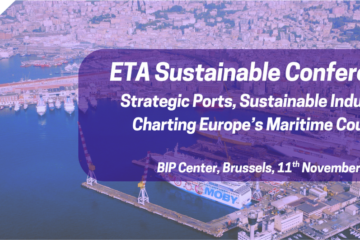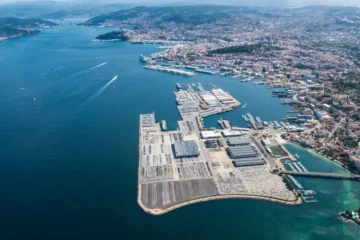The European Commission published its Communication on a New Approach for a Sustainable Blue Economy in the EU. This document underlines the essential role that all maritime and marine sectors play in order to reach the EU green and digital transition goals.
Europe’s blue economy provides 4.5 million direct jobs and generates €218billion gross value added. It encompasses all industries and sectors related to oceans, seas and coasts, whether they are based in the marine environment (e.g. shipping, fisheries…) or on land (e.g. ports, shipyards, land-based aquaculture…).
The communication highlights the importance of short-sea shipping as an alternative to more polluting transport modes. Thus, the Commission aims at promoting the use of EU funds to support the uptake of this type of shipping, renovate the EU’s maritime fleet in order to improve its energy efficiency and finance highly-advanced manufacturing in European shipyards. Moreover, the communication outlines the EU Commission plans to revise the Ship Recycling Regulation to extend its scope and reinforce the existing regime.
ETA welcomes the sustainable blue economy communication as it gives more clarity and coherence to the EU policies and actions. The maritime and marine cluster can play a fundamental role in the transition to a greener economy while generating new business opportunities and jobs. There are plenty of synergies to explore and create between the different actors in the blue economy. This communication enumerates a good series of tools and actions that can make this maritime cluster greener, smarter, stronger and more cohesive.
The EU Commission has also published the 2021 Blue Economy Report which provides an overview of the performance of the EU-27 economic sectors related to oceans and the coastal environment.



0 Comments